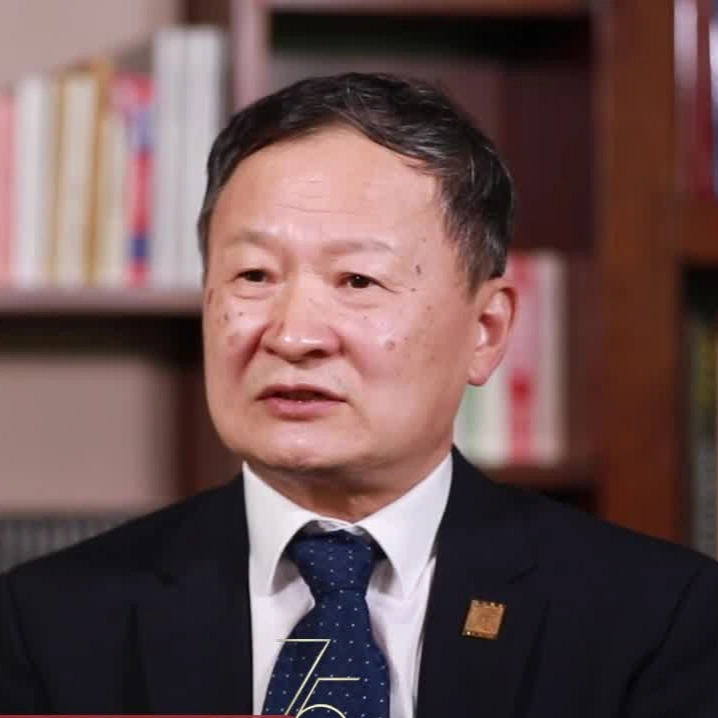What Harris vs. Trump Matchup Means for China

The announcement of President Biden’s withdrawal from the U.S. presidential race has sparked significant controversy in American politics. speculate that this paves the way for former President Trump’s potential victory. However, from China’s perspective, regardless of the election outcome, China remains steadfast in its readiness to address its global strategies, particularly concerning Taiwan.
Firstly, whether it’s Trump or Harris who wins, mainland China’s reunification policy is unlikely to undergo substantial changes.
On one hand, Harris may face challenges in altering the Biden administration’s Pacific strategy due to considerations for Biden’s campaign sponsors. If Harris wins, China has already prepared comprehensive contingency plans in response.
On the other hand, Trump’s recent interview with Bloomberg, where he suggested that Taiwan island should pay more for U.S. protection and complained Taiwan has” taken about 100% of our chip business”, seemingly offering negotiating rooms for the Taiwan question. However, from China’s perspective, Trump’s bargaining chip is obviously limited.
This is because, regardless of how much protection money the US receive, intervening in China’s reunification is predominantly a military issue. However, current assessments indicate that the U.S. military lacks the capability to defeat China in the Taiwan Strait. This fact is evident from the 19 wargames conducted by the U.S. all resulting in defeats. To get a victory outcome, the Center for Strategic and International Studies even manipulated the Chinese military to only conduct 20 minutes of pre-landing bombardment, leading to a disastrous defeat, and thus, retreating due to heavy losses.
Such an impractical setting reveals a lack of confidence in the U.S military, as even in Operation Overlord during WW2, the Allied forces conducted 40 minutes of naval bombardment and 30 minutes of aerial bombing before landing Omaha Beach, yet still faced substantial resistance, resulting in 3,686 casualties, making Omaha one of the largest losses on D Day. This lesson led the U.S. military to conduct five weeks of air and naval strikes against Iraq before deploying ground forces in the Gulf War.
For the Chinese military, which surpasses the WW2 U.S. capabilities, these wargames are seen as lacking professionalism. Basing victory on the Chinese military’s flawed assumptions is actually a disgrace to the world’s most experienced amphibious forces. Hence, the notion that Taiwan island should increase payments for protection becomes inconsequential, acknowledged by all parties involved. Consequently, Trump’s negotiations on this matter are seen as a false flag.
Additionally, Trump’s accusation that Taiwan has captured 100% of the U.S. chip business, implied that if TSMC were to transfer its semiconductor industry to the U.S., it would gain protection. This implication further underscores the reluctance of the U.S. military to intervene in the Taiwan issue. Previously, the Biden administration asserted that China’s reunification could jeopardize the global chip supply chain. If Taiwan were to lose its semiconductor industry, wouldn’t this reduce the legitimacy of the U.S. military to disrupt China’s reunification?
Moreover, during Trump’s previous presidency, Chinese leaders clearly stated that there was no room for compromise on the red line concerning the Taiwan question. Therefore, Trump’s speculation is unlikely to affect China’s assessment of the situation in the Taiwan Strait. As a presidential candidate, his statements are seen as mere campaign rhetoric rather than sincere promises, much like his claim to have a quick solution to the Russia-Ukraine conflict, which remains vague on specific plans to keep the issue relevant in the election.
Secondly, regardless of who wins, the decline of U.S. global dominance is irreversible.
This decline results from the military-industrial complex’s demand for continuous wars, where military actions no longer yield returns higher than the costs. This systemic issue can’t be fixed by one or two presidential terms.
Trump’s pledge to cease aid to Ukraine has garnered significant support from the American lower class, who view such aid as a losing proposition. In fact, since WW2, the U.S. has only dared to bully easy targets and avoided direct conflict with equally powerful nations. Initially, this approach yielded some benefits, but since the Korean War, U.S. military interventions have been loss-making ventures for two main reasons.
First, military actions aimed at generating profits rely on directing international capital flows. This requires the U.S. military to strike swiftly, deploying sufficient force within a critical period to induce capital panic. However, from Vietnam to Yemen, the spread of anti-tank weapons and drones has led to prolonged military engagements against guerilla forces that can target high-value assets. With intervention targets increasingly close to powerful nations such as Russia or Iran, these adversaries receive continuous support, preventing the U.S. military from controlling costs or eliminating enemy forces, making international capital hard to manipulate.
Second, internal instability within U.S. politics has weakened ally loyalty and accelerated the decline of global hegemony. From Trump’s refusal to acknowledge the 2020 election results to his recent narrow escape from an assassination attempt, U.S. election outcomes are increasingly contested. In this context, maintaining European support for the Biden administration’s Ukraine war is challenging.
For instance, Germany immediately reduced aid to Ukraine following Biden’s withdrawal announcement, reflecting Europe’s awareness of growing bipartisan division in the U.S. This political polarization reduces the continuity of U.S. foreign policy, lowering allies’ confidence in its global strategy. Furthermore, as factors that can influence the election extend beyond ballot boxes to warehouse rooftops, political uncertainty in the U.S. is clearly rising.
In conclusion, despite global leaders, including China’s president, expressing condolences following Trump’s unfortunate experience, implicitly reflects their views on the election outcomes, the decline of U.S. global dominance due to technical proliferation and electoral system issues is irreversible within one or two presidential terms, and China’s advantages and determination in reunification are beyond the reversal of multiple U.S. presidencies. The transition of the U.S. from a global hegemon to a significant pole in a multipolar world is widely acknowledged. This trend underpins China’s confidence in maintaining a consistent approach towards the U.S.
In a world full of uncertainties, China is increasingly becoming the pole with the most certainty.




